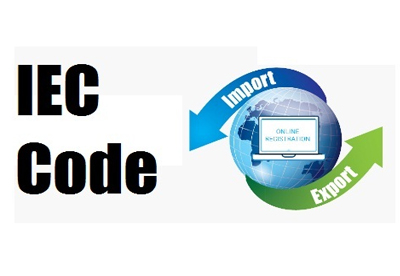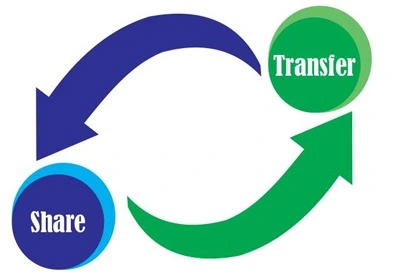Section 8 Company Registration: A Simple Guide
The Startup India Initiative is a flagship program by the Government of India designed to foster innovation, empower entrepreneurs, and create large-scale job opportunities. It aims to build a supportive ecosystem that helps startups grow through innovation and design, driving sustainable economic growth.
Let’s break down Startup India registration into simpler terms so you can understand its objectives, eligibility, and benefits more easily.
Sadaweh Financial Solutions (OPC) Pvt. Ltd.
Get In Touch
What is Startup India Recognition?
The registration process for a Section 8 Company involves a few steps:
- Obtain Digital Signature Certificates (DSC) for the company’s directors.
- Get Director Identification Numbers (DIN) for the directors.
- File an application with the Registrar of Companies (ROC).
- Submit necessary documents such as the Memorandum of Association (MOA) and Articles of Association (AOA).
- After verification, the ROC will issue a Certificate of Incorporation, confirming that the company is legally registered and can begin its operations.
It’s important to remember that Section 8 Companies cannot use the words “Private Limited” or “Limited” in their names.
Frequently Asked Questions About Section 8 Company Registration
What is a Section 8 Company?
A Section 8 Company is a non-profit company registered under the Companies Act 2013 in India. It aims to promote social causes and charitable work, with all profits used for these purposes.
What Are the Benefits of a Section 8 Company?
- Tax Exemptions: Enjoy tax benefits for non-profit activities.
- Limited Liability: Protects the personal assets of directors and members.
- Separate Legal Identity: A Section 8 company is a distinct legal entity.
- Funding Opportunities: Can receive foreign donations and corporate social responsibility (CSR) funds.
What Is the Minimum Capital Required for a Section 8 Company?
There is no minimum capital requirement for registering a Section 8 Company. However, the company must have enough funds to achieve its objectives.
Can a Section 8 Company Make Profits?
Yes, a Section 8 Company can earn profits. But, unlike other businesses, profits cannot be distributed to members. They must be reinvested into the company to support its social and charitable goals.
How Is a Section 8 Company Different from a Trust or Society?
The main difference between a Section 8 Company and a Trust or Society is their registration process and regulatory framework. A Section 8 Company is registered under the Companies Act, 2013, while a Trust is registered under the Indian Trusts Act, 1882, and a Society under the Societies Registration Act, 1860. Section 8 Companies also have stricter rules and more detailed reporting requirements compared to Trusts and Societies.
Conclusion
Registering a Section 8 Company is a great way to set up a legal non-profit organization in India that focuses on social and charitable causes. The process involves obtaining essential documents, filing with the Registrar of Companies, and ensuring compliance with the Companies Act. By doing so, you can gain the benefits of tax exemptions, limited liability, and the ability to receive funding for your cause.
Section 8 Company Registration FAQ’s
What is a Section 8 Company?
A Section 8 Company is a non-profit organization registered under the Companies Act 2013 in India. It is also called a Not-for-Profit Company, and its primary objective is to promote social welfare and charitable causes.
What are the benefits of registering a Section 8 Company?
Section 8 Companies enjoy various uses, such as tax exemptions, limited liability, and separate legal identities. They can also avail foreign funding and corporate social responsibility (CSR) contributions.
What is the minimum capital requirement for registering a Section 8 Company?
Unlike other companies, there is no minimum capital requirement for registering a Section 8 Company. However, the company must ensure sufficient capital to carry out its objectives.
Can a Section 8 Company earn profits?
Yes, a Section 8 Company can make profits. However, these profits must be used for promoting the company’s objectives and cannot be distributed as dividends to its members.
What is the difference between a Section 8 Company and a Trust or Society?
The main difference between a Section 8 Company and a Trust or Society is that the former is registered under the Companies Act, 2013, while the latter is registered under the Indian Trusts Act, 1882 or the Societies Registration Act, 1860. Section 8 Companies have more stringent regulations and reporting requirements than Trusts and Societies.

Startup India Tax Exemption is a government initiative providing...

One Person Company (OPC) is a type of company registration in India

LLP (Limited Liability Partnership) is a famous business

A Private Limited Company (PLC) is a famous business structure...

ISO registration online is a convenient and efficient solution for...

FSSAI Registration is mandatory for petty food manufacturers or...

Class III Digital signature (Individual) with 2 years validity and...

A section 8 company is a non-profit organization that can be...

Get DGFT IE Code to start importing and exporting from...

Registering a partnership firm is a smart move if you're planning to...

Share transfer from one person to another person or...

MSME Udyam registration online is a new process introduced by...
